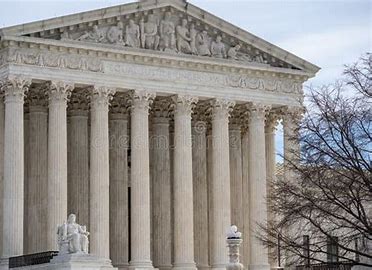
Washington, D.C. – The U.S. Supreme Court heard oral arguments Thursday on former President Donald Trump’s executive order seeking to restrict birthright citizenship. While the court appeared hesitant to allow the policy to take effect, justices debated whether lower courts should have the power to block presidential orders nationwide.
Trump’s order, signed on his first day back in office, aims to deny U.S. citizenship to children born in the country unless at least one parent is a citizen or lawful permanent resident. Critics argue the policy violates the 14th Amendment, which guarantees citizenship to “all persons born or naturalized in the United States, and subject to the jurisdiction thereof”.
During the hearing, liberal justices expressed strong opposition to the policy. Justice Sonia Sotomayor argued that the order contradicts established Supreme Court precedent. At the same time, Justice Elena Kagan noted that every lower court ruling has gone against the Trump administration on this issue.
The debate also touched on the broader issue of nationwide injunctions, which allow judges in a single court to block policies nationwide. Some conservative justices questioned whether such injunctions should be limited, suggesting that class-action lawsuits could provide an alternative legal remedy.
Justice Clarence Thomas raised concerns about the increasing use of nationwide injunctions, noting that they were rare before the 1960s. Meanwhile, Justice Ketanji Brown Jackson warned that restricting injunctions could create a “catch-me-if-you-can” scenario, allowing the administration to enforce policies until individuals affected by them manage to file lawsuits.
The Supreme Court is expected to issue a ruling by late June, which could have significant implications for immigration policy and judicial authority. If the court limits nationwide injunctions, it could make it harder for lower courts to block executive actions in the future.




